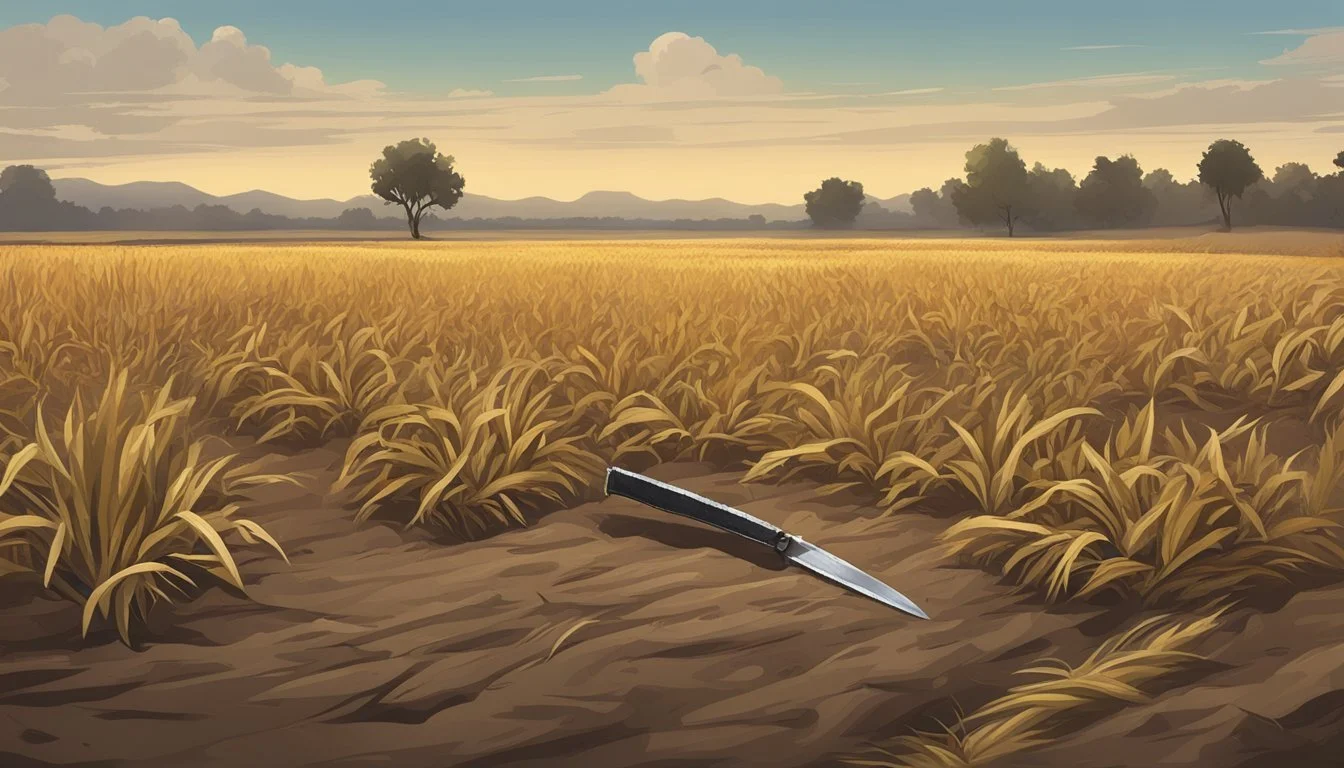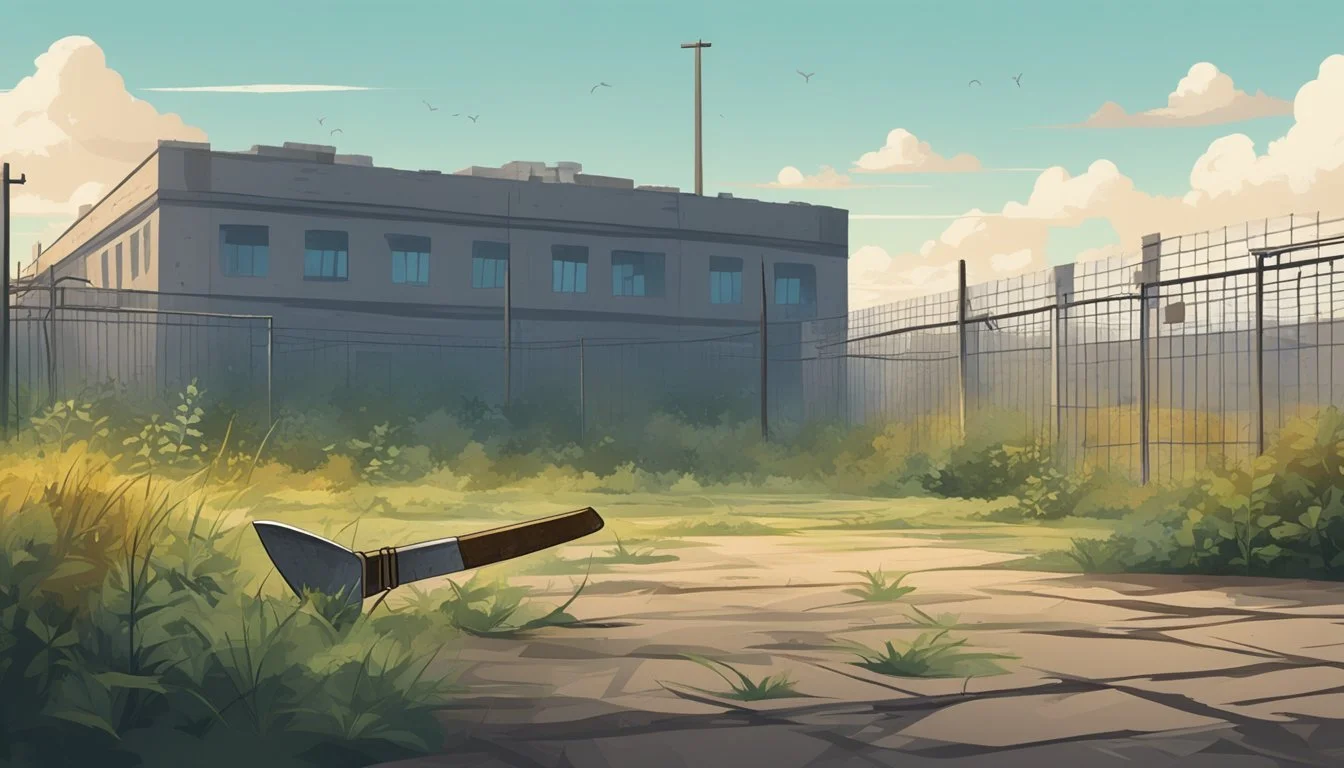Juan Corona's Harvest Ends: Machete Murderer Dies of Natural Causes in Prison
Juan Corona, the infamous "Machete Murderer," died of natural causes at age 85 in a California prison on March 4, 2019. His passing marked the end of a dark chapter in American criminal history that shocked the nation in the early 1970s.
Corona gained notoriety for the brutal slayings of 25 migrant farm workers in California's Sutter County. His crimes, involving the use of a machete to kill his victims before burying them in peach orchards along the Feather River, stood as one of the most heinous mass murders in U.S. history at the time.
The Mexican-born farm labor contractor's reign of terror came to an end in 1971 when a suspicious hole was discovered in a peach orchard near Yuba City. This discovery led to the unearthing of multiple bodies and Corona's subsequent arrest, conviction, and life sentence. His death in prison closed the final chapter of a case that had gripped the nation for decades.
The Life of Juan Corona
Juan Corona was born on February 7, 1934, in Autlán, Jalisco, Mexico. He immigrated to the United States in the 1950s, settling in California.
Corona initially worked as a migrant laborer picking fruit. Over time, he became a labor contractor, recruiting workers for farms in the Yuba City area.
In 1956, Corona married and started a family. He gained legal permanent resident status in the U.S., obtaining a green card.
Corona's life took a dark turn in 1971. Between February and May of that year, he murdered 25 migrant farm workers in Sutter County, California.
The victims were found buried in shallow graves in peach orchards near Yuba City. Many had been stabbed and hacked with a machete.
Corona was arrested on May 26, 1971. His first trial in 1973 resulted in conviction on all 25 counts of murder.
After a retrial in 1982, Corona was again found guilty. He received 25 concurrent life sentences without the possibility of parole.
Corona spent the remainder of his life in prison. He died of natural causes at age 85 on March 4, 2019, at a hospital in Corcoran, California.
Crimes of the Machete Murderer
Juan Corona's brutal killing spree in 1971 left 25 migrant farm workers dead, their bodies buried in shallow graves near Yuba City, California. His gruesome methods and the scale of his crimes shocked the nation.
The Killing Spree
Between February and May 1971, Juan Corona embarked on a deadly rampage targeting migrant workers. He lured his victims with promises of work on local farms. Corona's weapon of choice was a machete, earning him the chilling moniker "Machete Murderer."
The killings took place in Sutter County, California, near the Feather River. Corona's role as a farm labor contractor gave him access to a vulnerable population of transient workers.
Victims and Shallow Graves
Corona's victims were all male migrant farm workers, ranging in age from 40 to 68. He buried their bodies in crude, shallow graves in peach orchards along the Feather River.
Most victims showed signs of savage machete attacks. Many had deep stab wounds and slashes to their heads and upper bodies. Some bodies were found with their shirts pulled over their heads.
The graves were typically 3 to 4 feet deep. Corona often covered the bodies with dirt and debris from the orchards.
Investigation and Apprehension
The crimes came to light when a farm owner noticed disturbed soil in his orchard. On May 19, 1971, the first body was discovered. Over the next week, investigators unearthed 25 bodies from various sites.
Evidence at the crime scenes quickly led police to Juan Corona. They found receipts with his name and meat labels from his freezer near some graves. A survivor's testimony also implicated Corona.
On May 26, 1971, police arrested Corona at his home in Yuba City. A search of his vehicle revealed a machete, a pistol, and a ledger with cryptic entries believed to list his victims.
Trial and Incarceration
Juan Corona faced legal proceedings that led to his conviction and decades-long imprisonment. His time in California's prison system involved mental health evaluations and multiple appeals of his sentence.
Legal Proceedings
Corona's trial began in September 1972. The prosecution presented evidence including a ledger book with victims' names and meat receipts matching burial dates. Corona pleaded not guilty by reason of insanity. After a 13-week trial, the jury found Corona guilty on all 25 counts of first-degree murder.
The judge sentenced Corona to 25 consecutive life terms. His conviction marked one of California's most prolific serial killer cases at the time.
Life in California Prison
Corona served his sentence in various California prisons. He faced attacks from other inmates, losing an eye in one assault. Prison officials often kept Corona in protective custody due to his notoriety and vulnerability.
Corona worked in the prison laundry and participated in therapy sessions. His behavior was generally described as compliant, though he maintained his innocence throughout his incarceration.
Appeals and Mental Health Analysis
Corona's lawyers filed multiple appeals, citing issues with his original defense. In 1978, an appeals court overturned his conviction, granting a new trial. The second trial in 1982 again resulted in guilty verdicts on all counts.
Mental health experts diagnosed Corona with schizophrenia. Some evaluations suggested he may have suffered from dissociative identity disorder. These assessments played a role in his appeals but did not alter his convictions.
Corona's final appeal was denied in 2011. He remained incarcerated until his death in 2019 at the age of 85.
Comparative Cases of Serial Killers
Serial killers have left lasting impacts on society, criminal justice, and public perception. Their cases often reveal systemic issues and cultural phenomena beyond the individual crimes.
Ted Bundy and Societal Impact
Ted Bundy's crimes shocked America in the 1970s. He murdered at least 30 young women across seven states. Bundy's charisma and seeming normalcy challenged perceptions of what a killer looked like.
His case sparked increased awareness of personal safety, especially for women. It also led to reforms in law enforcement communication and evidence gathering across jurisdictions.
Bundy's trial was one of the first to be nationally televised. This media coverage shaped public fascination with serial killers for decades to come.
Charles Manson and Cult Influence
Charles Manson never personally killed anyone. Yet he orchestrated multiple murders through his cult following. The Manson Family shocked the nation in 1969 with the brutal Tate-LaBianca killings.
Manson's case highlighted the power of cult psychology and manipulation. It exposed the dark underbelly of 1960s counterculture and free love movements.
The trial brought unprecedented media attention. It challenged notions of criminal responsibility and the power of influence.
Illegal Alien Serial Killers and Immigration
Cases of illegal alien serial killers have fueled debates on immigration policy. These rare but high-profile cases often receive disproportionate attention.
Angel Maturino Resendiz, known as the "Railroad Killer", murdered at least 15 people across six states. His ability to cross borders undetected exposed weaknesses in immigration enforcement.
Such cases have been used to argue for stricter border controls. Critics argue this unfairly vilifies immigrants, as native-born citizens commit the vast majority of violent crimes.
The intersection of serial killers and immigration highlights complex issues of public safety, border security, and societal perceptions.
Juan Corona's Final Years and Death
Juan Corona spent his last years in prison, experiencing declining health and mental faculties. He suffered from multiple heart attacks and developed dementia as he aged behind bars.
Corona's mental state deteriorated significantly in his later life. He required increased medical care and supervision as his condition worsened over time.
In March 2019, Corona died of natural causes at a hospital in California at the age of 85. He had been serving multiple life sentences for his crimes.
Prior to his death, Corona was housed at the California State Prison in Corcoran. The facility provided healthcare and welfare services to address his medical needs as an aging inmate.
Corona's attorney, Kenneth Whitacre, had previously argued that his client's mental health issues should be considered in his case. However, Corona remained incarcerated until his death despite these claims.
The once-notorious "Machete Murderer" passed away quietly, far removed from the horrific crimes that shocked the nation decades earlier. His death marked the final chapter in one of California's most infamous criminal cases.
The Legacy of Juan Corona
Juan Corona's crimes left an indelible mark on American criminal history. His actions as a labor contractor who murdered migrant workers in Northern California had far-reaching consequences beyond the immediate victims and their families.
Media and Pop Culture
Corona's case attracted significant media attention. True crime books and documentaries explored the disturbing details of his murders. The 1978 TV movie "A Question of Guilt" dramatized Corona's trial. His crimes inspired episodes of popular crime shows like "Law & Order" and "Criminal Minds."
Several non-fiction works analyzed Corona's psychology and motives. "The Machete Murders" by Richard Levine became a bestseller. Corona's case remains a topic of interest for true crime enthusiasts and is frequently discussed on podcasts and online forums.
Impact on Labor Contracting
Corona's actions led to increased scrutiny of labor contracting practices in California's agricultural industry. New regulations were implemented to protect migrant workers. Background checks for labor contractors became more stringent.
Farm owners adopted stricter hiring practices for contractors. Some migrant workers reported feeling less secure about seeking employment through labor contractors. The case highlighted the vulnerability of transient workers and sparked discussions about labor rights and safety in agriculture.
Criminal Psychology and Case Studies
Corona's crimes became a significant case study in criminal psychology. Researchers examined his background, personality, and motivations. His case is often included in textbooks on serial killers and forensic psychology.
Corona's murders highlighted the phenomenon of organized killers who maintain seemingly normal lives. His ability to function as a respected businessman while committing heinous crimes fascinated criminologists. The case provided valuable insights into the psychology of serial killers who target marginalized populations.
Forensic experts studied Corona's crime scenes and burial methods. His case contributed to advancements in forensic archaeology and the investigation of clandestine graves.





